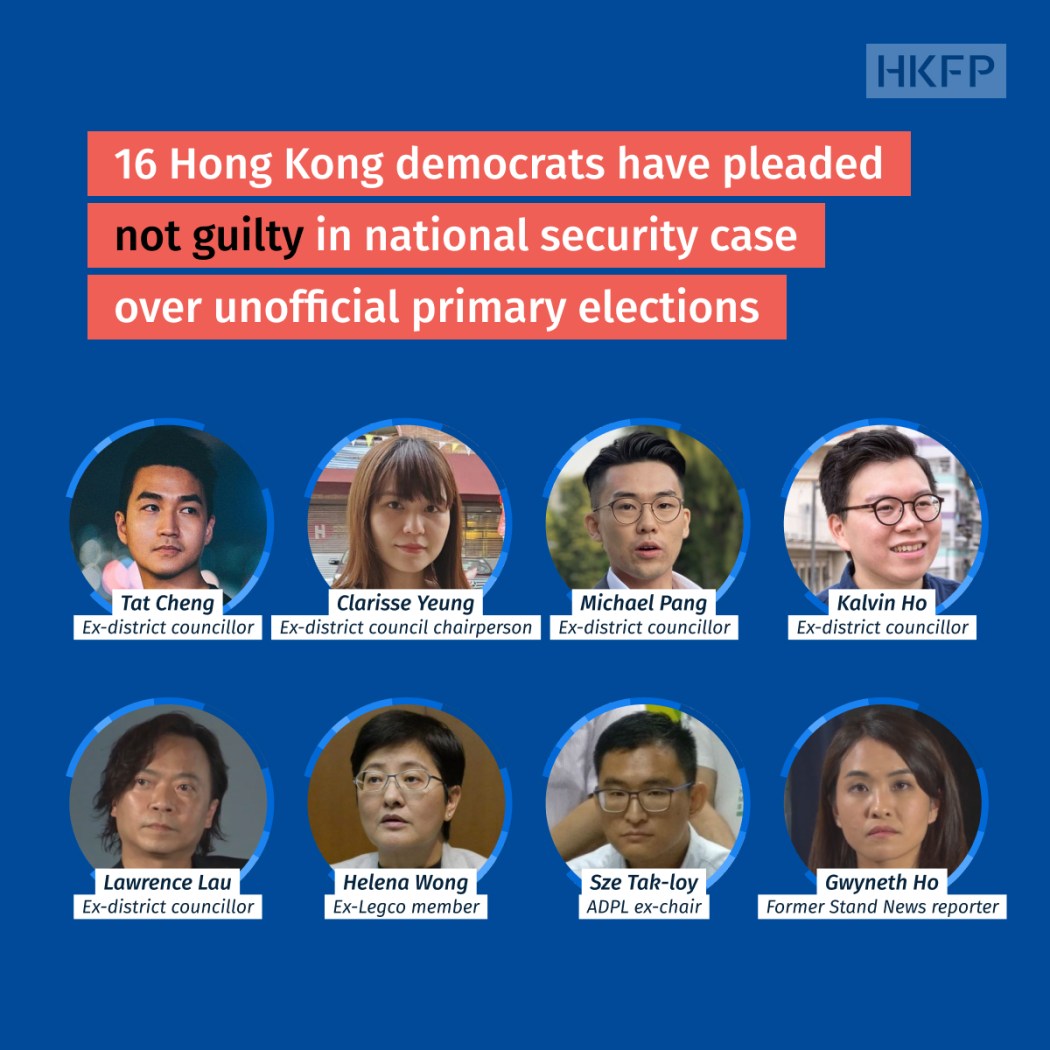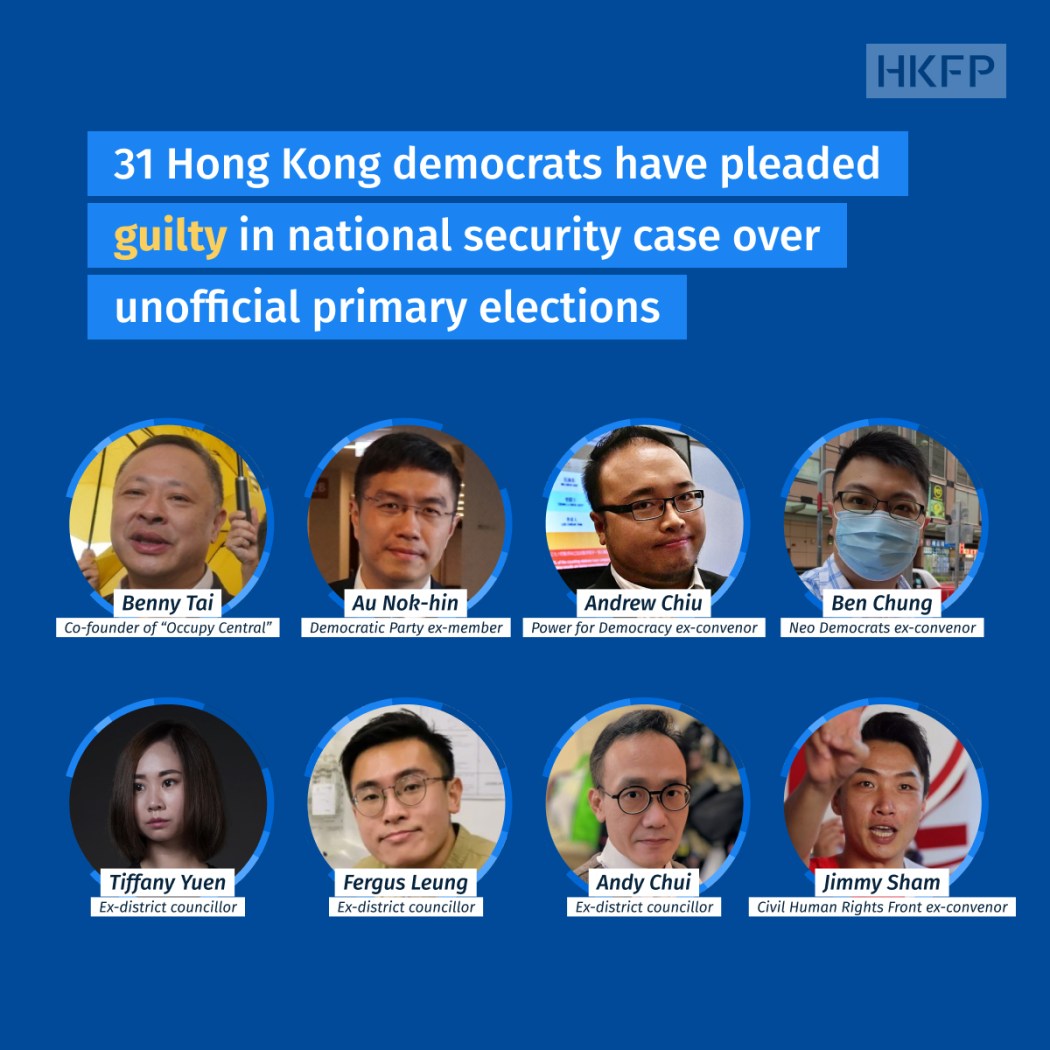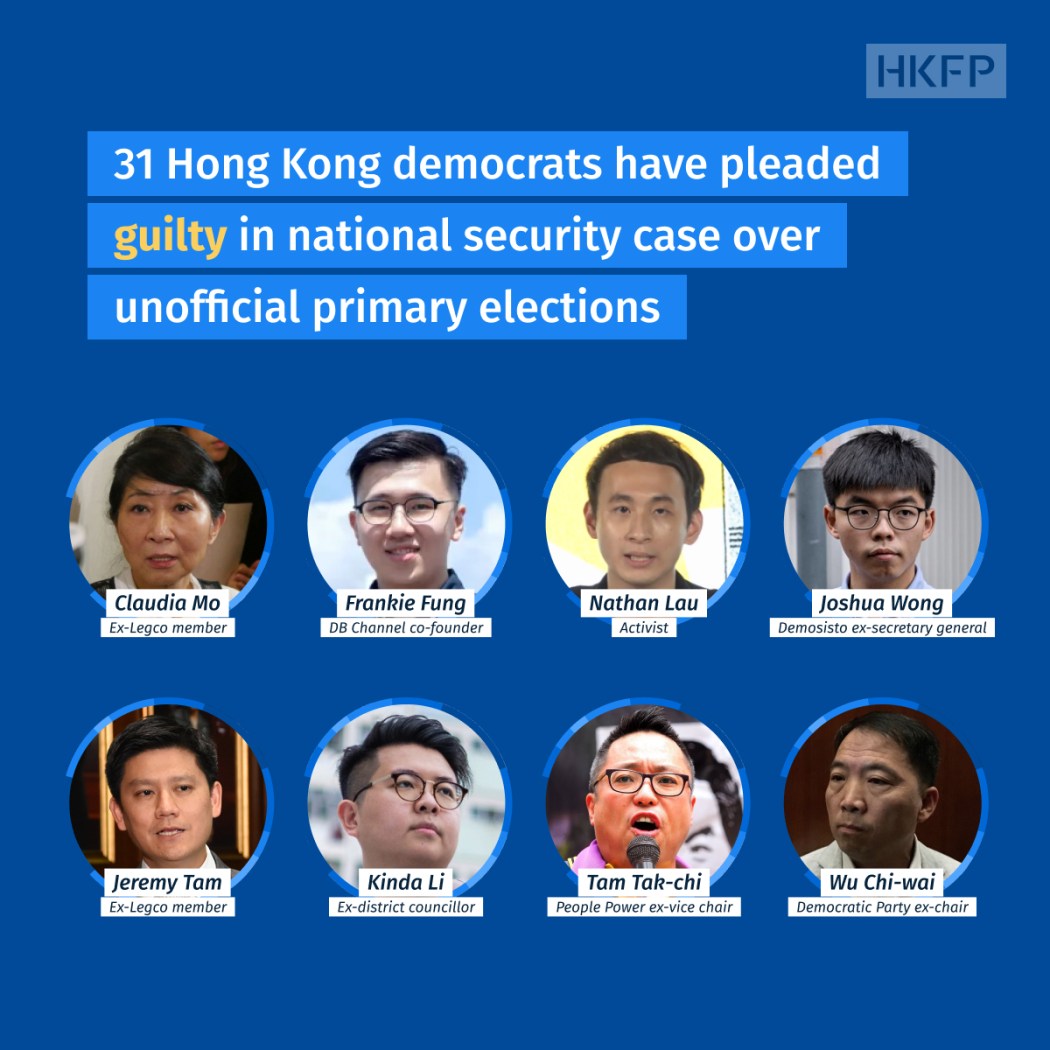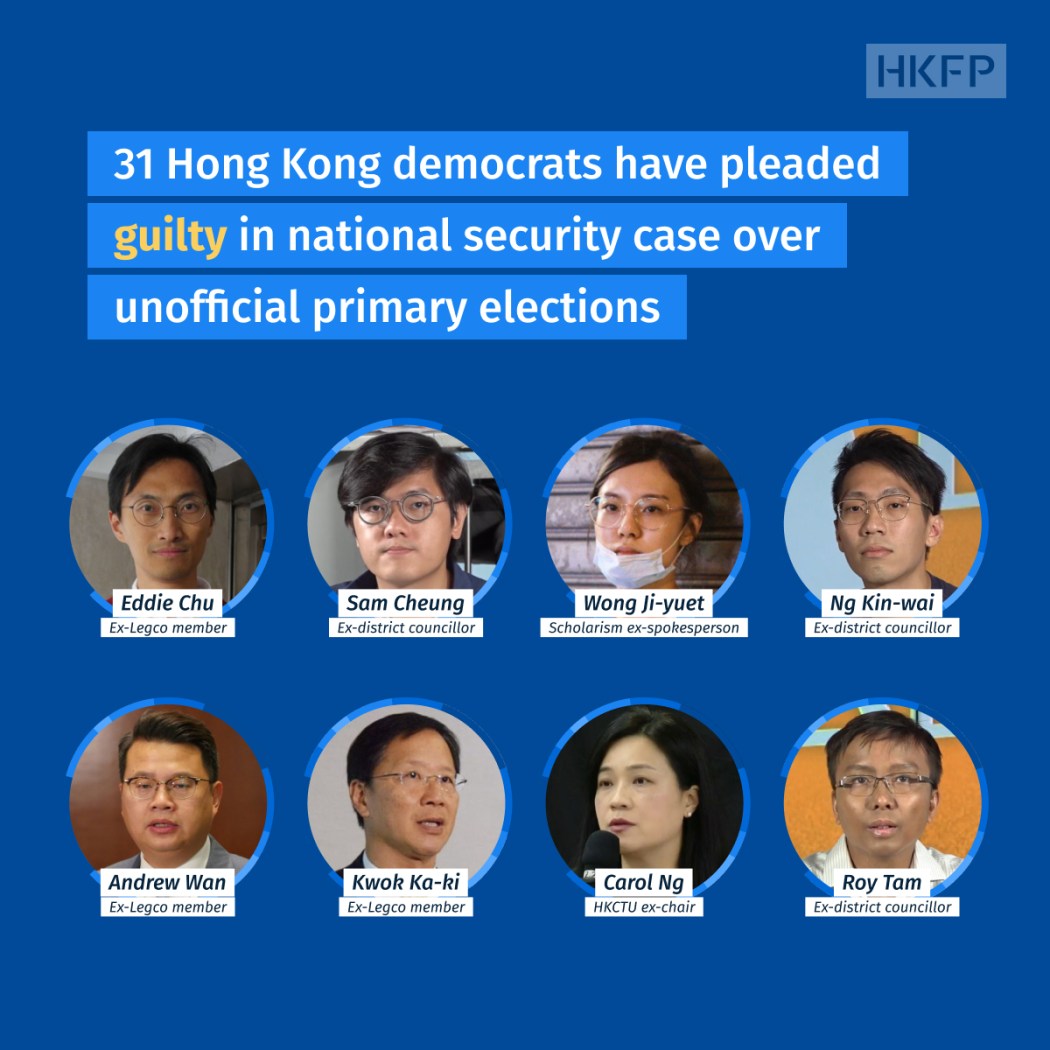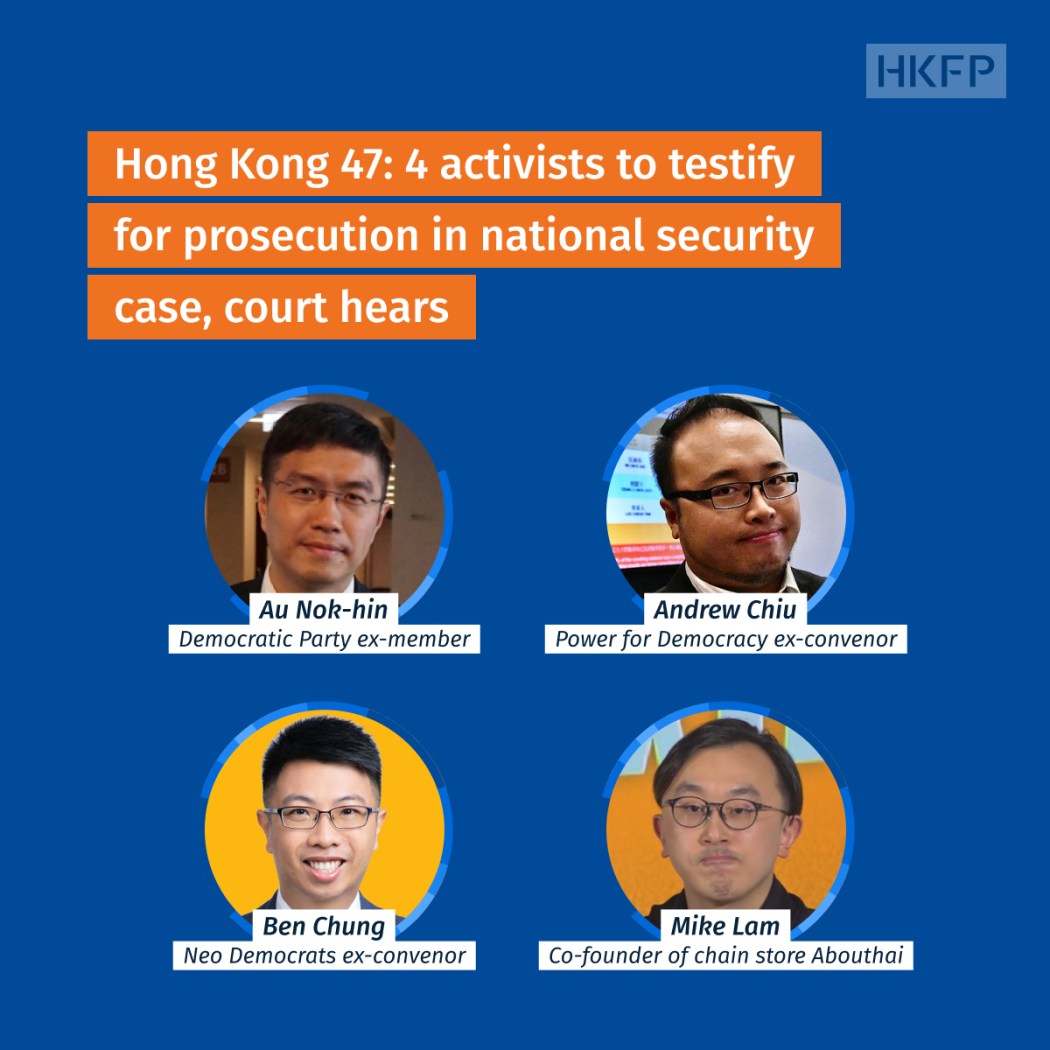Hong Kong’s landmark national security trial involving 47 pro-democracy figures accused of conspiring to subvert state power could end as early as next Monday, a court has heard.

Closing submissions began on Wednesday in the trial against 16 of the defendants who pleaded not guilty under a sweeping security law Beijing imposed in 2020. The arguments were expected to last for 10 days, after a three-month adjournment since the last defendant completed her testimony in August.
But on Thursday two defence lawyers, representing the last two defendants yet to make their final statements, told the court they could conclude next Monday, as they asked for a brief adjournment.
Steven Kwan, representing ex-District Councillor Lee Yue-shun, said he would be making a joint argument on behalf of most of the defendants after the prosecution on Wednesday submitted a second written argument.

Judge Andrew Chan agreed to adjourn the trial till Monday, allowing Kwan time to finish his response to the prosecution’s argument. Chan added Kwan would have the last word, meaning that the prosecution would not be responding to his arguments.
Trevor Beel, representing journalist-turned-activist Gwyneth Ho, also said he could end his submission on Monday. Lee and Ho were the last two defendants who had yet to submit final arguments.
The 47 defendants stand accused of “conspiracy to subvert state power” over their role in an unofficial opposition primary election in July 2020, which aimed to select the best opposition candidates in hopes of winning a majority in the city’s legislature.

If they won a majority, they allegedly planned to veto the government budget regardless of its contents, thereby forcing the resignation of then-chief executive Carrie Lam and a government shutdown.
A total of 31 of them pleaded guilty when the trial began in February, including legal scholar Benny Tai and activist Joshua Wong.
‘Unlawful means’ to endanger China’s security
Lead prosecutor Jonathan Man on Wednesday argued that the defendants should be convicted even if no violence was involved, as their scheme had amounted to “unlawful means” that endangered national security.
Man added that it was not a defence that the activists may have genuinely believed in the legality of their actions.
Senior Counsel Hectar Pun, representing ex-District Counsellor Tat Cheng and former lawmaker “Long-hair” Leung Kwok-hung, argued on Thursday that his clients had not been proven to have plotted a conspiracy. Even if certain agreements were reached regarding the elections, there was no consensus on vetoing the budget, Pun told the court.

He further argued that the veto power, as provided for in the city’s Basic Law or mini-constitution, could not have triggered a constitutional crisis as suggested by the prosecution.
David Ma, who represented former lawmaker Raymond Chan, also said it was “incomprehensible” that a mechanism stipulated in the Basic Law could be “unlawful.” As long as the law had not forbidden the use of the veto power, the exercise of it could not be a breach of the law, he said.
Kevin Chan, representing activist Owen Chow, said there was no evidence of an agreement among the defendants on the use of the veto power. He said his client had no intention of subverting the state, and the prosecution had failed to prove “unlawful means.”
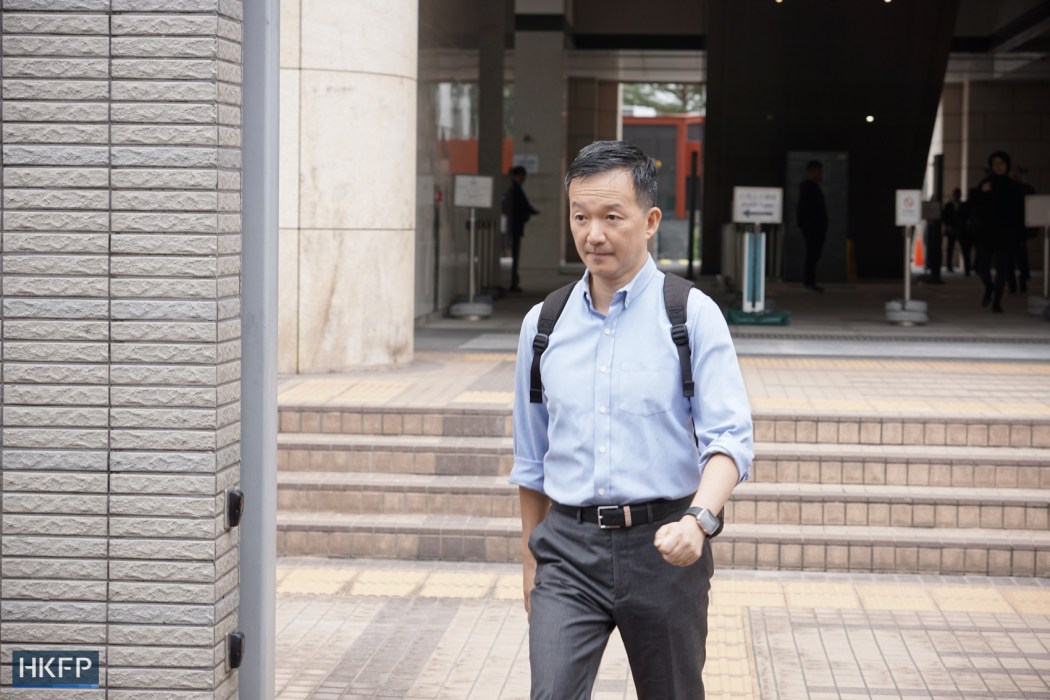
Judge Chan said on Wednesday that, after the closing submissions, a verdict may “tentatively” be delivered in three to four months. The defendants could be sentenced to life imprisonment if convicted.
Most of the defendants have been detained since a marathon bail hearing in March 2021, with 13 currently out on bail.
Beijing inserted national security legislation directly into Hong Kong’s mini-constitution in June 2020 following a year of pro-democracy protests and unrest. It criminalised subversion, secession, collusion with foreign forces and terrorist acts – broadly defined to include disruption to transport and other infrastructure. The move gave police sweeping new powers and led to hundreds of arrests amid new legal precedents, while dozens of civil society groups disappeared. The authorities say it restored stability and peace to the city, rejecting criticism from trade partners, the UN and NGOs.
Support HKFP | Policies & Ethics | Error/typo? | Contact Us | Newsletter | Transparency & Annual Report | Apps
Help safeguard press freedom & keep HKFP free for all readers by supporting our team


